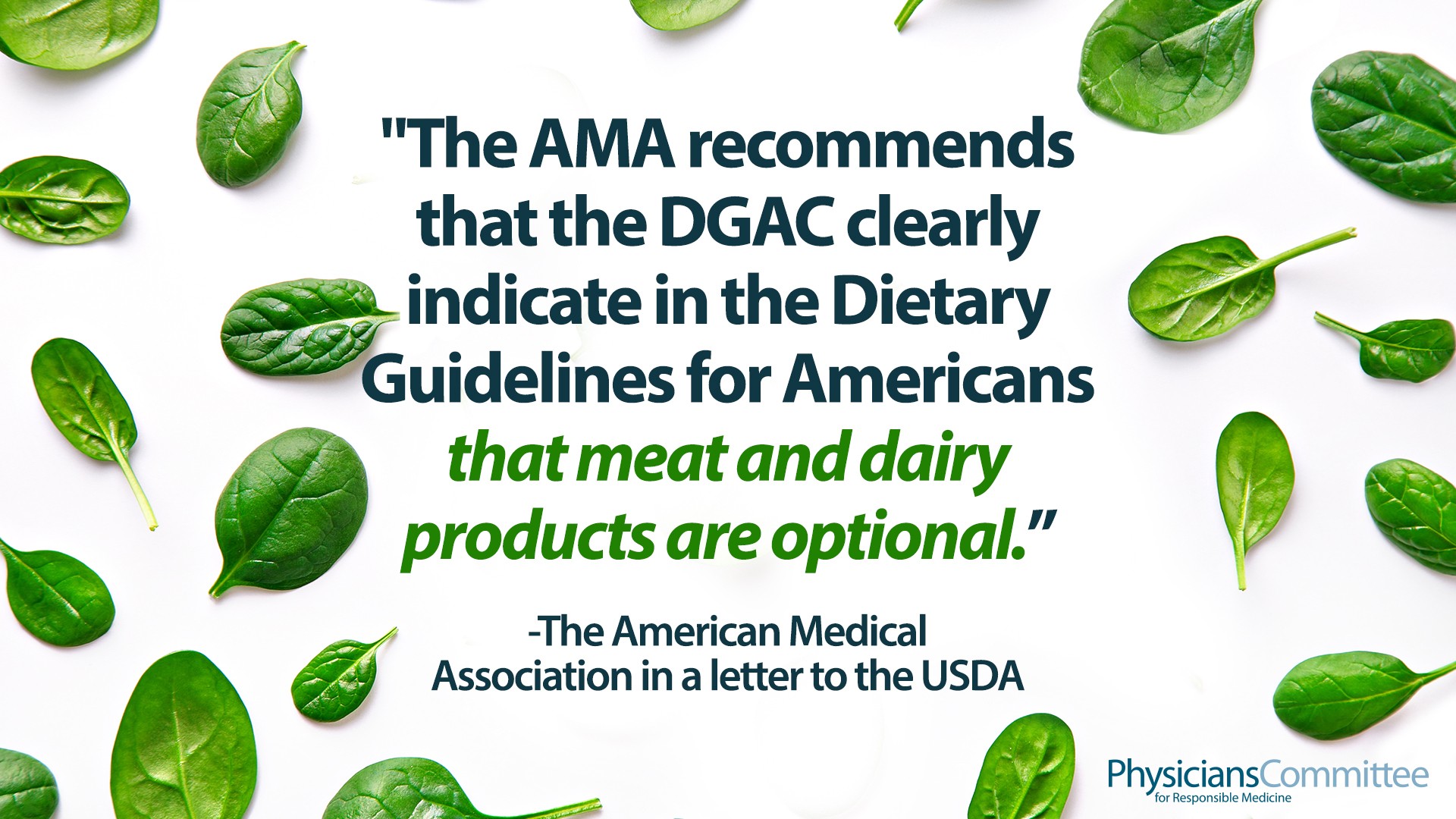American Medical Association Calls for Dietary Guidelines To Indicate ‘Meat and Dairy Products Are Optional’ To Fight Health Disparities

In response to the Scientific Report of the 2020 Dietary Guidelines Advisory Committee (DGAC), the American Medical Association has reiterated its call for the U.S. Department of Agriculture to fight racial health disparities by indicating in the Dietary Guidelines for Americans that “meat and dairy products are optional.”
In a letter dated Aug. 13, 2020, the AMA wrote: “The AMA supports culturally responsive dietary and nutritional guidelines and recognizes that racial and ethnic disparities exist in the prevalence of obesity and diet-related diseases such as coronary heart disease, cancer, stroke, and diabetes. Dairy and meat products are promoted in federal nutrition policies even though they are not nutritionally required. The AMA notes that Black Americans are at particularly high risk for prostate cancer, colorectal cancer, and cardiovascular mortality, and prostate and colorectal cancers are strongly linked to dairy, processed meat, and red meat consumption. Such products also contribute to cardiovascular risk and are not nutritionally indicated for all diets. Accordingly, the AMA recommends that the DGAC clearly indicate in the Dietary Guidelines for Americans (DGA) that meat and dairy products are optional, based on an individual’s dietary needs.”
The AMA first made the recommendation in “Culturally Responsive Dietary and Nutritional Guidelines D-440.978,” a resolution the organization passed in 2018.
The AMA is not alone in its call to remove bias from the Dietary Guidelines. Four-time NBA champion John Salley testified on behalf of the Physicians Committee before the USDA and HHS on Aug. 11 to urge the agencies to indicate in the Dietary Guidelines that dairy products are unnecessary and take a disproportionate health toll on people of color.
While Salley testified, doctors and health care providers from the Physicians Committee took part in a socially distanced demonstration outside of USDA headquarters in Washington, D.C.
The Physicians Committee also submitted a letter signed by nearly 500 health care professionals, including 300 physicians. The letter says that the DGAC’s scientific report “preserves antiquated, racially biased dairy-promoting guidelines, despite clear contributions to health problems that take a disproportionate toll in Black Americans and other demographic groups.”
The final Dietary Guidelines are expected to be released by the end of the year.







